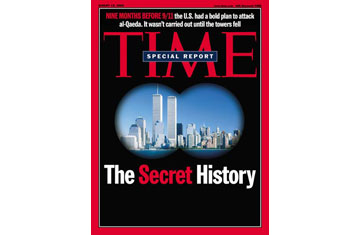
(8 of 19)
As the snows cleared for the annual spring military campaign, a joint offensive against Massoud by the Taliban and al-Qaeda seemed likely. But the influence of al-Qaeda on the Taliban was proving deeply unpopular among ordinary Afghans, especially in the urban centers. "I thought at most 20% of the population supported the Taliban by early summer," says Vendrell. And bin Laden's power made Massoud's plea for outside assistance more urgent. "We told the Americans--we told everyone--that al-Qaeda was set upon a transnational program," says Abdullah Abdullah, once a close aide to Massoud and now the Afghan Foreign Minister. In April, Massoud addressed the European Parliament in Strasbourg, France, seeking support for the Northern Alliance. "If President Bush doesn't help us," he told a reporter, "these terrorists will damage the U.S. and Europe very soon."
But Massoud never got the help that he needed--or that Clarke's plan had deemed necessary. Most of the time, Northern Alliance delegates to Washington had to be satisfied with meeting low-level bureaucrats. The Alliance craved recognition by the U.S. as a "legitimate resistance movement" but never got it, though on a visit in July, Abdullah did finally get to meet some top National Security Council (NSC) and State Department officials for the first time. The best the Americans seemed prepared to do was turn a blind eye to the trickle of aid from Iran, Russia and India. Vendrell remembers much talk that spring of increased support from the Americans. But in truth Massoud's best help came from Iran, which persuaded all supporters of the Northern Alliance to channel their aid through Massoud alone.
Only once did something happen that might have given Massoud hope that the U.S. would help. In late June, he was joined in Dushanbe, Tajikistan, by Abdul Haq, a leading Pashtun, based in Dubai, who was opposed to the Taliban. Haq was accompanied by someone Massoud knew well: Peter Tomsen, a retired ambassador who from 1989 to '92 had been the U.S. State Department's special envoy to the Afghan resistance. Also present was James Ritchie, a successful Chicago options trader who had spent part of his childhood in Afghanistan and was helping bankroll the groups opposed to the Taliban. (Haq was captured and executed by the Taliban last October while on a quixotic mission to Afghanistan.) Tomsen insists that the June 2001 trip was a private one, though he had told State Department officials of it in advance. Their message, he says, was limited to a noncommittal "good luck and be careful."
The purpose of the meeting, according to Tomsen, was to see if Massoud and Haq could forge a joint strategy against the Taliban. "The idea," says Sayeed Hussain Anwari, now the Afghan Minister of Agriculture, who was present at the meeting, "was to bring Abdul Haq inside the country to begin an armed struggle in the southeast." Still hoping for direct assistance from Washington, Massoud gave Tomsen all the intelligence he had on al-Qaeda and asked Tomsen to take it back to Washington. But when he briefed State Department officials after his trip, their reaction was muted. The American position was clear. If anything was to be done to change the realities in Afghanistan, it would have to be done not by the U.S. but by Pakistan. Massoud was on his own.
CLARKE: CRYING WOLF
